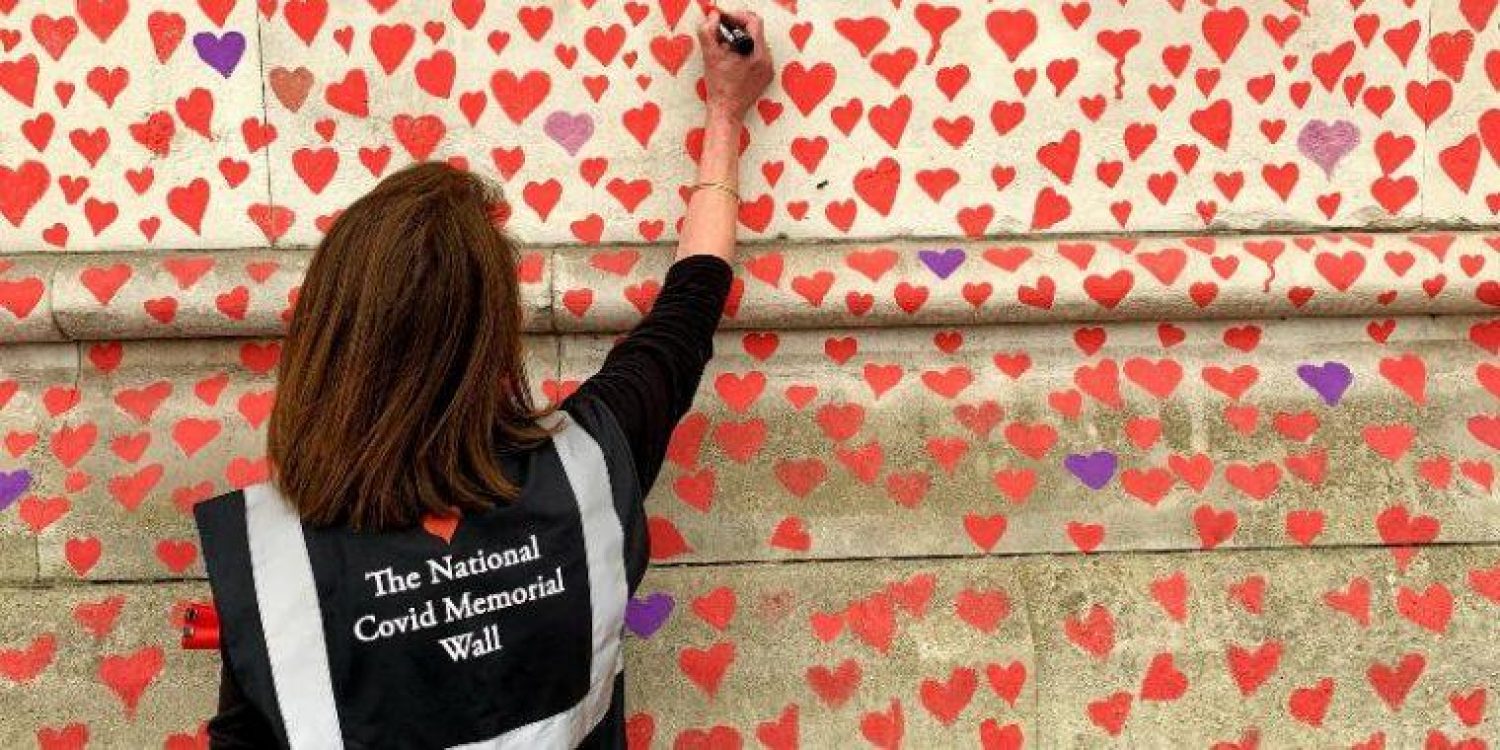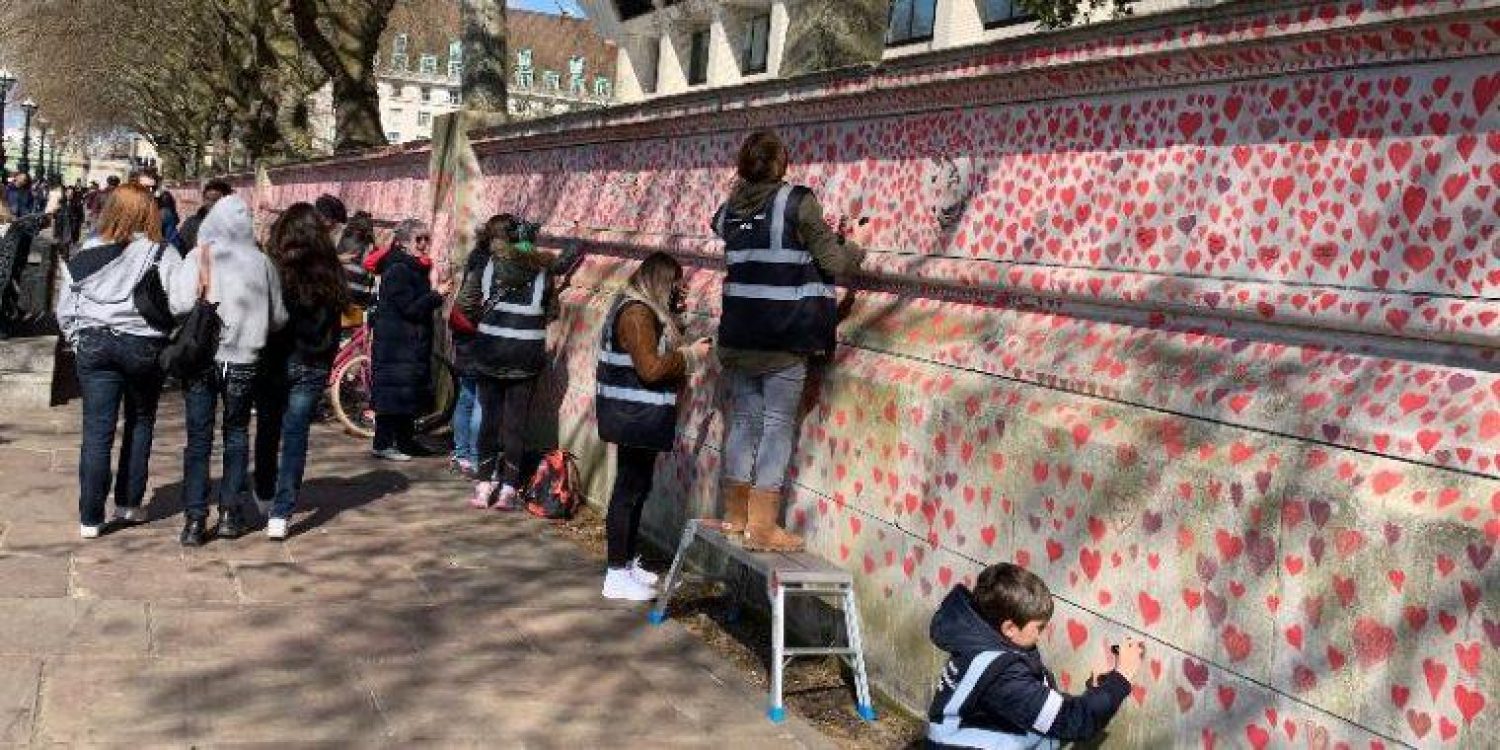Four minute read
After Fran Hall’s husband Steve died with Covid-19 in 2020, she became an active member of the Covid-19 Bereaved Families for Justice Campaign. Here she tells us why the National Covid Memorial Wall matters so much and why she and other families are campaigning for justice.
The idea for the wall came from Matt and Jo, who set up the Covid-19 Bereaved Families for Justice campaign. We are a collection of bereaved families who are working hard on the campaign for a public inquiry. A couple of weeks before, members of the group within reach of London were invited to contribute to an artistic commemoration of the tens of thousands of people who have lost their lives to Covid-19.
At that point, we didn’t know what we might be signing up for. But I was intrigued, so I put my name down. At an online briefing a few days before the intended start, the organisers showed us an artist’s impression of the wall, and told us that, because we didn’t have permission, we would be committing criminal damage and could face a fine or prison. Despite this, I don’t think anyone decided to duck out.
I volunteered for Monday, the first day, and potentially the most risky. When I arrived at the Albert Embankment, everything was incredibly well organised. We were divided into groups of three or four people. Each group was allocated a section of the wall to draw a heart for every single person who had Covid-19 listed as a cause of death on their death certificate — over 150,000 hearts. As we got started, I found myself talking to people who had had similar experiences to me. I was so drawn to being there that I came back the next day and the next, I spent ten days working on the wall in total.
I didn’t know beforehand what an impact it would have on me. I drew the first heart and wrote Steve’s name on it and carried on, thinking as I drew each heart about the people who were impacted just as I had been. I felt very responsible. It felt like it was an important thing to do.
People walking by would stop and ask us questions, especially on that first day when it wasn’t in the media. They were curious at first and wanted to know what it was all about. So we started talking and explaining. And people were grateful, they said: thank you for doing this.
Bereaved families started coming, like they were making a pilgrimage. They would come with flowers or to write a name. The wall became a focal point for them, a place to go, to see their person’s name there, in public, being recognised. It is imbued with immense meaning and emotion. The wall has provided something for bereaved families and friends, but nothing can replace the people we have lost.

